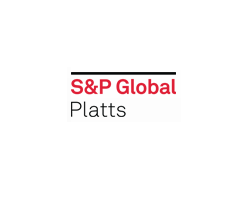ESG Metrics No Longer a Fad to Mining Industry

October 24, 2020 - Environmental, social and governance metrics have become an increasingly hot topic for the mining industry and were not just a gimmick, panelists said at this year's London Metal Exchange Week.
The need for renewable energy and low-carbon production methods -- including local supply chains -- were being thrust to the top of investors' agendas as the world grapples with the coronavirus pandemic, they said at the virtual event.
During the Bank of Montreal's LME Week seminar on Oct. 20, managing director of commodities research Colin Hamilton said ESG was no longer a "fad" as there was growing investor and industry interest.
These days "you have to know about ESG...[it will be] core front and center of the industry" going forward, Hamilton said.
That was one of the key underlying themes through the week.
LME CEO Matthew Chamberlain told participants the exchange had an "extremely exciting pipeline of innovation", with measures designed to boost transparency and sustainability.
The exchange's Sustainability Paper came back with 29 positive responses on the attaching of environmental data to metals traded on the exchange and "overwhelmingly in support of the LME playing a role...to complement the great work ... by producers, converters, and consumers to allow sustainable production to be embedded in the metals value chain," Chamberlain said.
"The LME needs to be a leader in this space," he said.
COVID-19 has defined the need for sustainability more so than any other event in history, especially for the metals and mining industry, Andrea Vaccari, the director responsible for production frameworks and sustainability at copper major Freeport-McMoRan, said Oct. 19.
Chance to Regroup
The pandemic had given people a chance to step back and look at how they wanted the future to look, portfolio manager at CalPERS Andrew Karsh said. For the metals industry in particular, sustainability was an evolving theme, "with transparency a key component," he said.
Karsh touched on the recent saga at mining major Rio Tinto whose CEO, Jean-Sebastian Jacques, was forced to quit in response to the destruction of sacred indigenous caves, the Juukan Gorge rock shelter, at its operations in Western Australia. That has been widely seen as one of the biggest results of investor pressure, to date.
Karsh said that only a few years ago it was unlikely a CEO would have had to step down over something like the incident.
Freeport's Vaccari said investors were seeking more transparency and, from where she sat, that was happening with increased regulation and frameworks.
Marisa Buchanan, head of sustainability at investment bank JP Morgan, said that as investors continued to seek alpha in the ESG space, it was important that the industry created the right conditions to make sustainable investments.
Mikkel Larsen, chief sustainability officer at DBS Bank, said that without a return on investments, renewable energy and the move to a sustainable future will struggle to get the attention it needs.
Government and Industry Together
JP Morgan's Buchanan said governments globally needed to come up with "thoughtful, efficient long term frameworks" that send right messaging, as Investment decisions can be influenced by policymakers.
A lot of attention has been on the impact that investors can have on good governance, and the resulting trickle-down effect.
During the week, there was a lot of talk about the important of copper, lithium, nickel and other metals to energy transition.
Adam Matthews, director of investment at the Church of England Pensions Board, said society still needed mining. "We need it to succeed. [It is] vital for transition to low carbon economy."
"Investors need to make interventions to drive systemic change," he said.
Matthews told S&P Global Platts earlier this year: "We are all part of society" and must acknowledge our connection to the financial investments we make.

